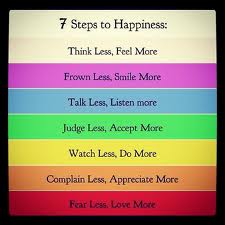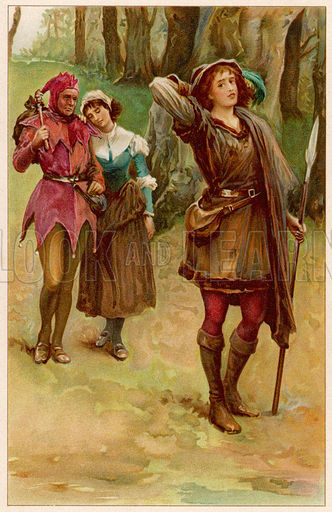
Today, when there is so much of information available on all human emotions and the reasons thereof, no one has any right or reason to be unhappy.
Actually earlier too, there was never a reason for people to be unhappy. Abraham Lincoln said in the early 19th century that ‘most people are about as happy as they make up their minds to be.’ However at that time there was no internet, literature was scanty and hardly available. Today, with the internet all the information and the images that one may require to collect about happiness, are easily available.
Vikram a student of 6th standard volunteered to collect the relevant information and the images on ‘how to be happy’. I reproduce the material collected by Vikram in about half an hour.
When I went through it, I found that anyone who would spend some time to read the knowledge collected by Vikram and see the pictures again collected by him should be never unhappy.
He informed me that he collected the pictures from Google images. Further, he collected the entire written material from Wikipedia. Please spend some time to look at the pictures and also a few minutes on reading the text which he collected from Wikipedia.
A smiling Rebecca L. Felton
Research has produced many different views on causes of happiness, and on factors that correlate with happiness, but no validated method has been found to substantially improve long-term happiness in a meaningful way for most people.
Sonja Lyubomirsky concludes in her book The How of Happiness that 50 percent of a given human’s happiness level is genetically determined (based on twin studies), 10 percent is affected by life circumstances and situation, and a remaining 40 percent of happiness is subject to self-control.
The results of the 75 year Grant study of Harvard undergraduates show a high correlation of loving relationship, especially with parents, with later life wellbeing
Psychologist Martin Seligman asserts that happiness is not solely derived from external, momentary pleasures, and provides the acronym PERMA to summarize Positive Psychology’s correlational findings: humans seem happiest when they have
1. Pleasure (tasty food, warm baths, etc.),
2. Engagement (or flow, the absorption of an enjoyed yet challenging activity),
3. Relationships (social ties have turned out to be extremely reliable indicator of happiness),
4. Meaning (a perceived quest or belonging to something bigger), and
5. Accomplishments (having realized tangible goals
6. Abraham Harold Maslow, an American professor of psychology, founded humanistic psychology in the 1930s. A visual aid he created to explain his theory, which he called the hierarchy of needs, is a pyramid depicting the levels of human needs, psychological, and physical. When a human being ascends the steps of the pyramid, he reaches self-actualization.
7. Beyond the routine of needs fulfillment, Maslow envisioned moments of extraordinary experience, known as peak experiences, profound moments of love, understanding, happiness, or rapture, during which a person feels more whole, alive, self-sufficient, and yet a part of the world. This is similar to the flow concept of Mihály Csíkszentmihályi.
8. Self-determination theory relates intrinsic motivation to three needs: competence, autonomy, and relatedness
HEALTH
1. Richard Davidson‘s 2012 bestseller The Emotional Life of Your Brain argues that positive emotion and happiness benefit your long-term health. From a study conducted in 2005 by Andrew Steptow and Michael Marmot, findings have found that happiness is clearly related to biological markers that play an important role in health.
2. At University College London, Steptow and Marmot collected health and well-being data from 116 men and 100 women. All 216 participants were middle-aged, British civil servants between the ages of 45 and 59. The researchers aimed to analyze whether there was any association between well-being and three biological markers: heart rate, cortisol levels, and plasma fibrinogen levels. Interestingly, the participants who rated themselves the least happy had cortisol levels that were 48% higher than those who rated themselves as the most happy. The least happy subjects also had a large plasma fibrinogen response to two stress-inducing tasks: the Stroop test, and tracing a star seen in a mirror image.
3.In Happy People Live Longer, Frey reports that happy people live 14% longer, increasing longevity 7.5 to 10 years.
4.Steptow and Marmot furthered their studies by using their participants three years later to repeat the physiological measurements. They found that participants who scored high in positive emotion continued to have lower levels of cortisol and fibrinogen, as well as a lower heart rate.
5.Despite a large body of positive psychological research into the relationship between happiness and productivity, happiness at work has traditionally been seen as a potential by-product of positive outcomes at work, rather than a pathway to success in business. However a growing number of scholars, including Boehm and Lyubomirsky, argue that it should be viewed as one of the major sources of positive outcomes in the workplace.
Thanks for reading.














